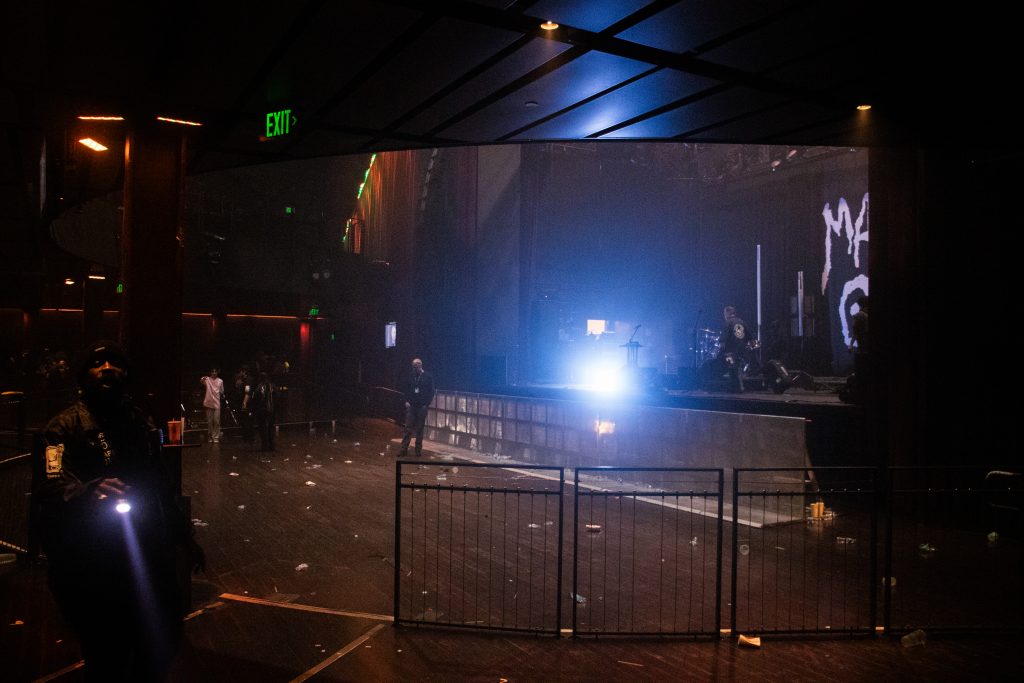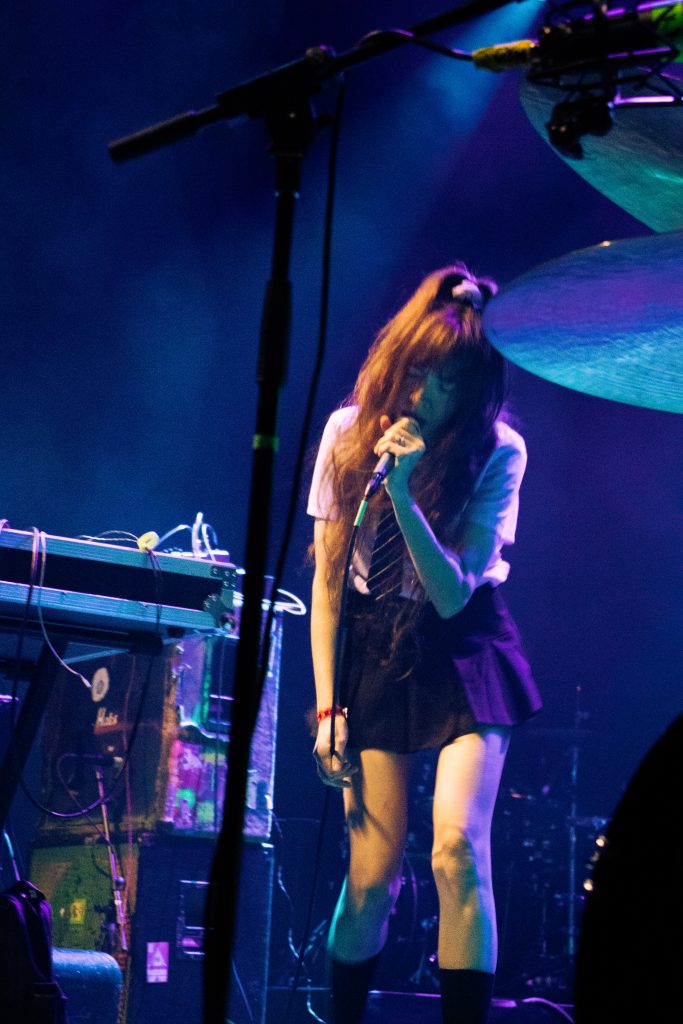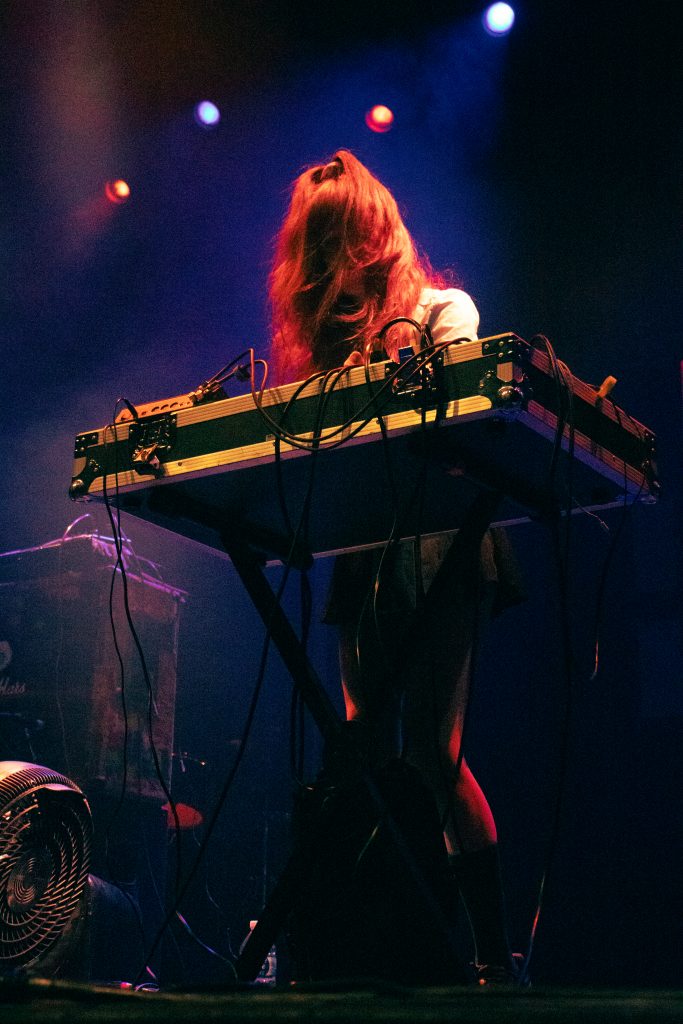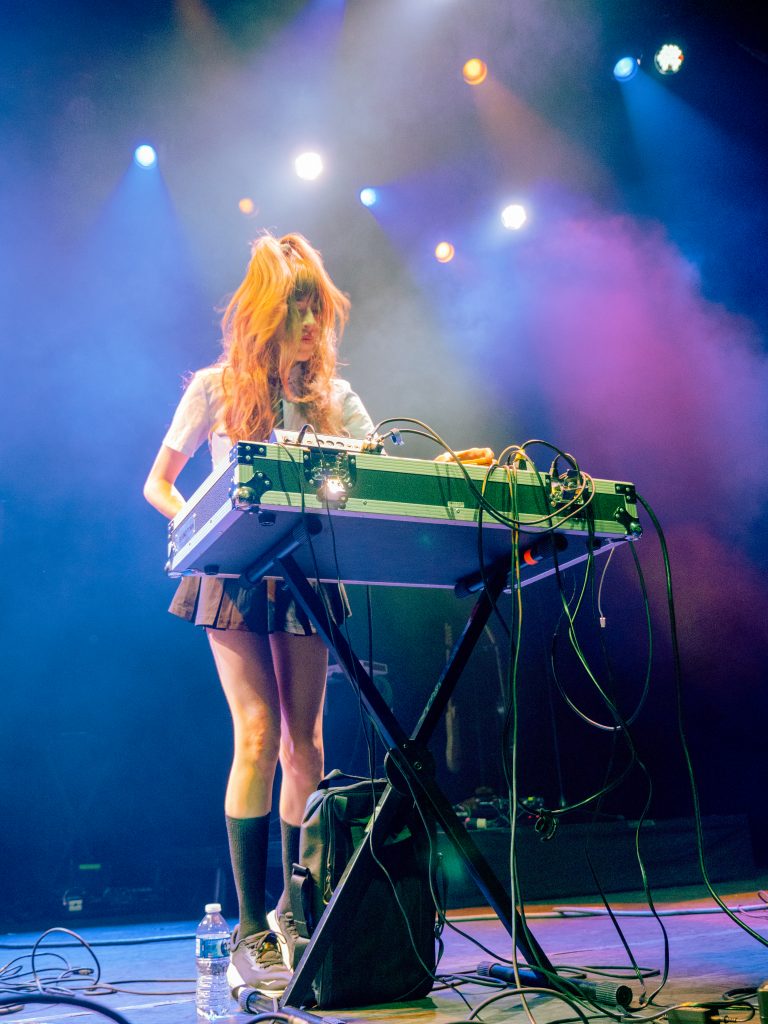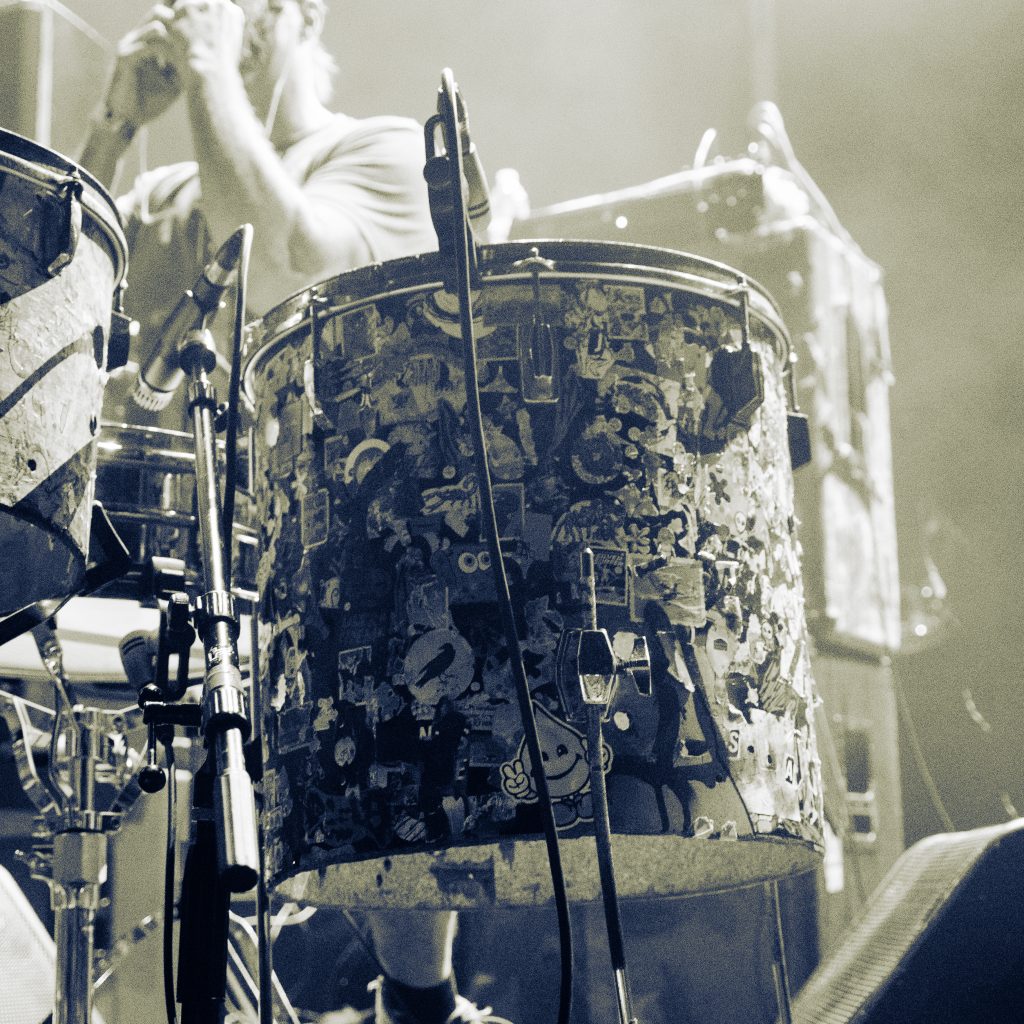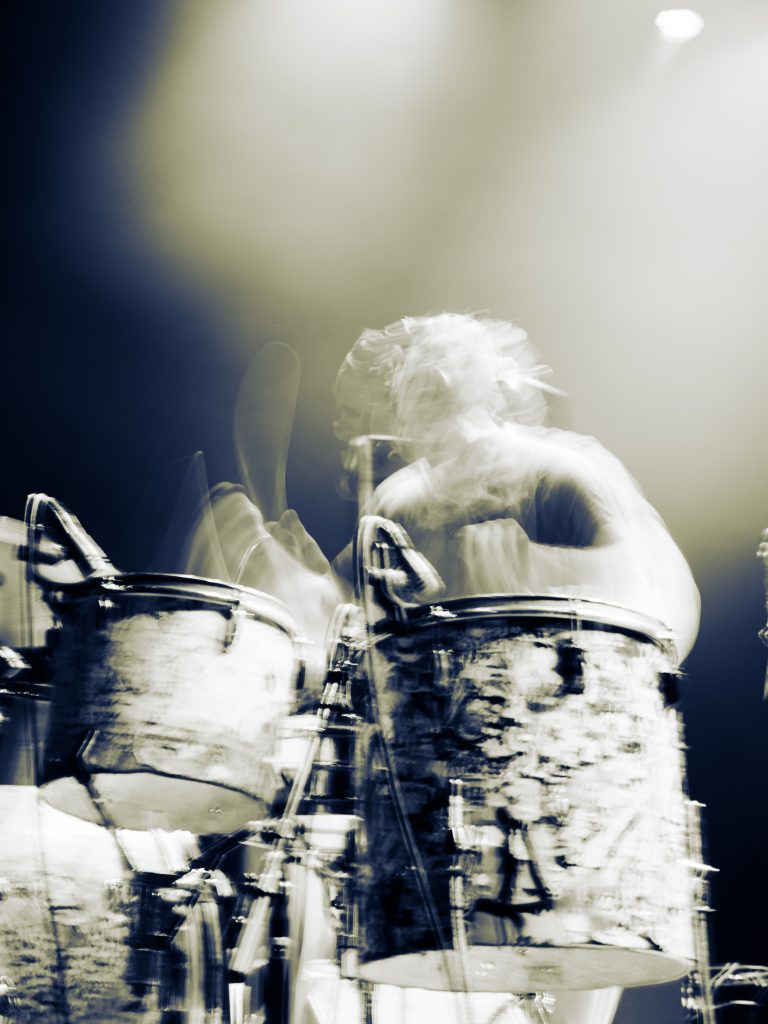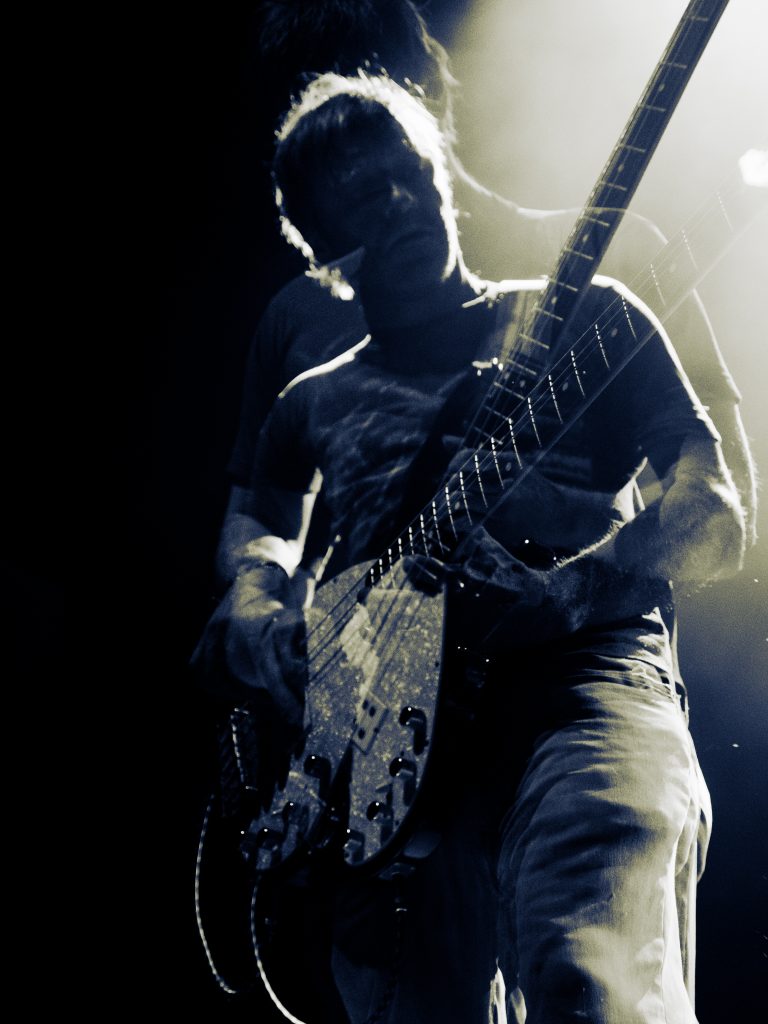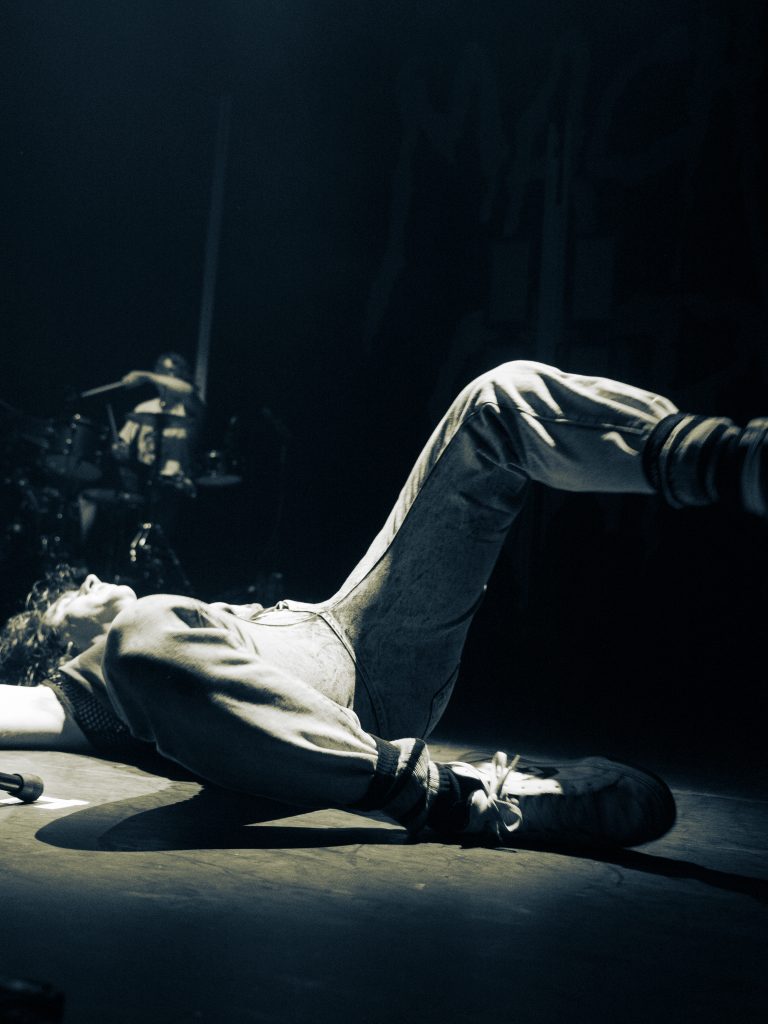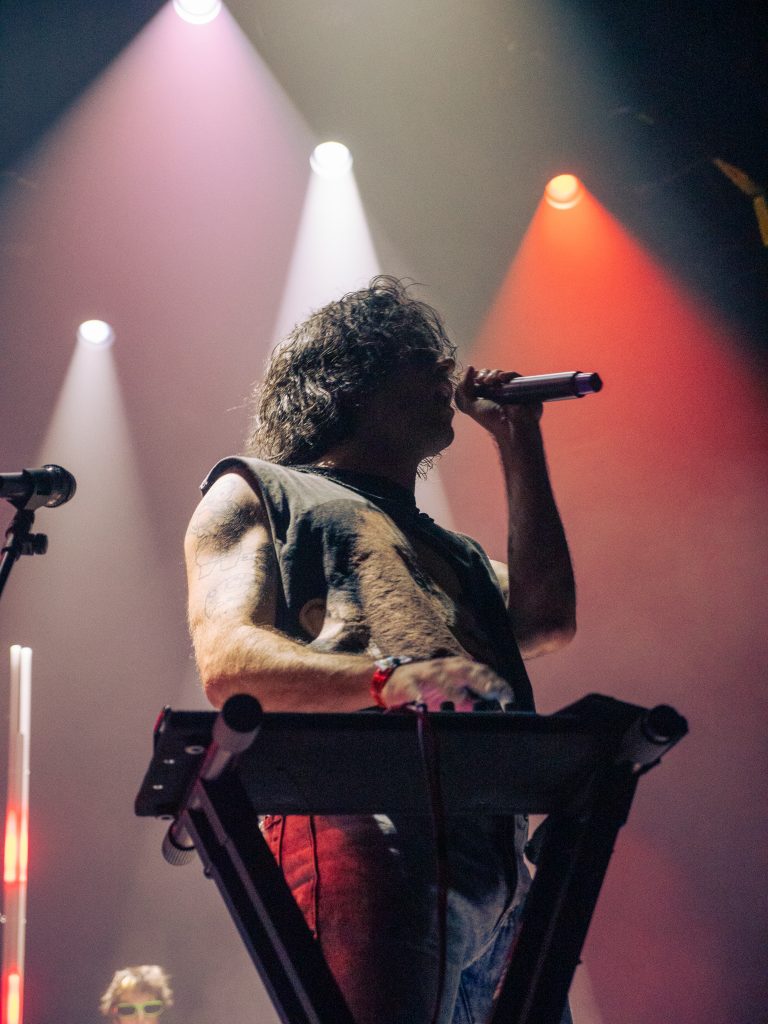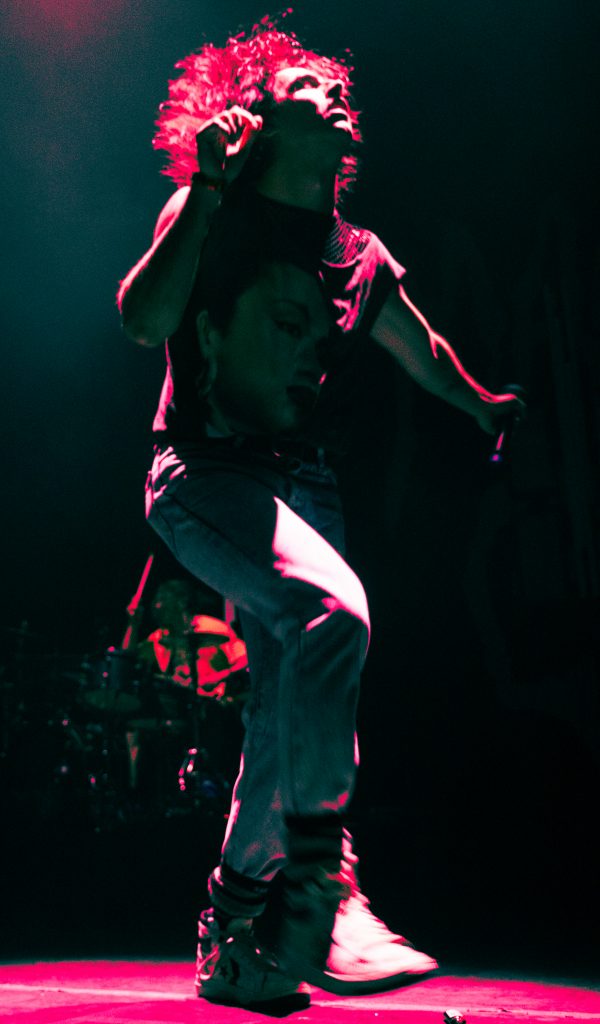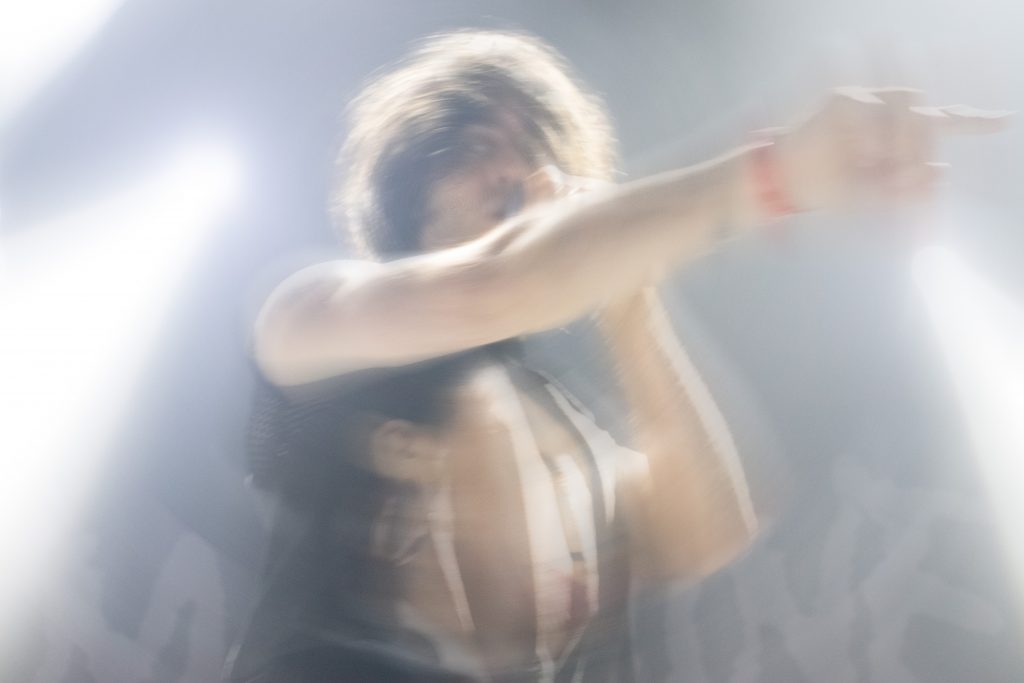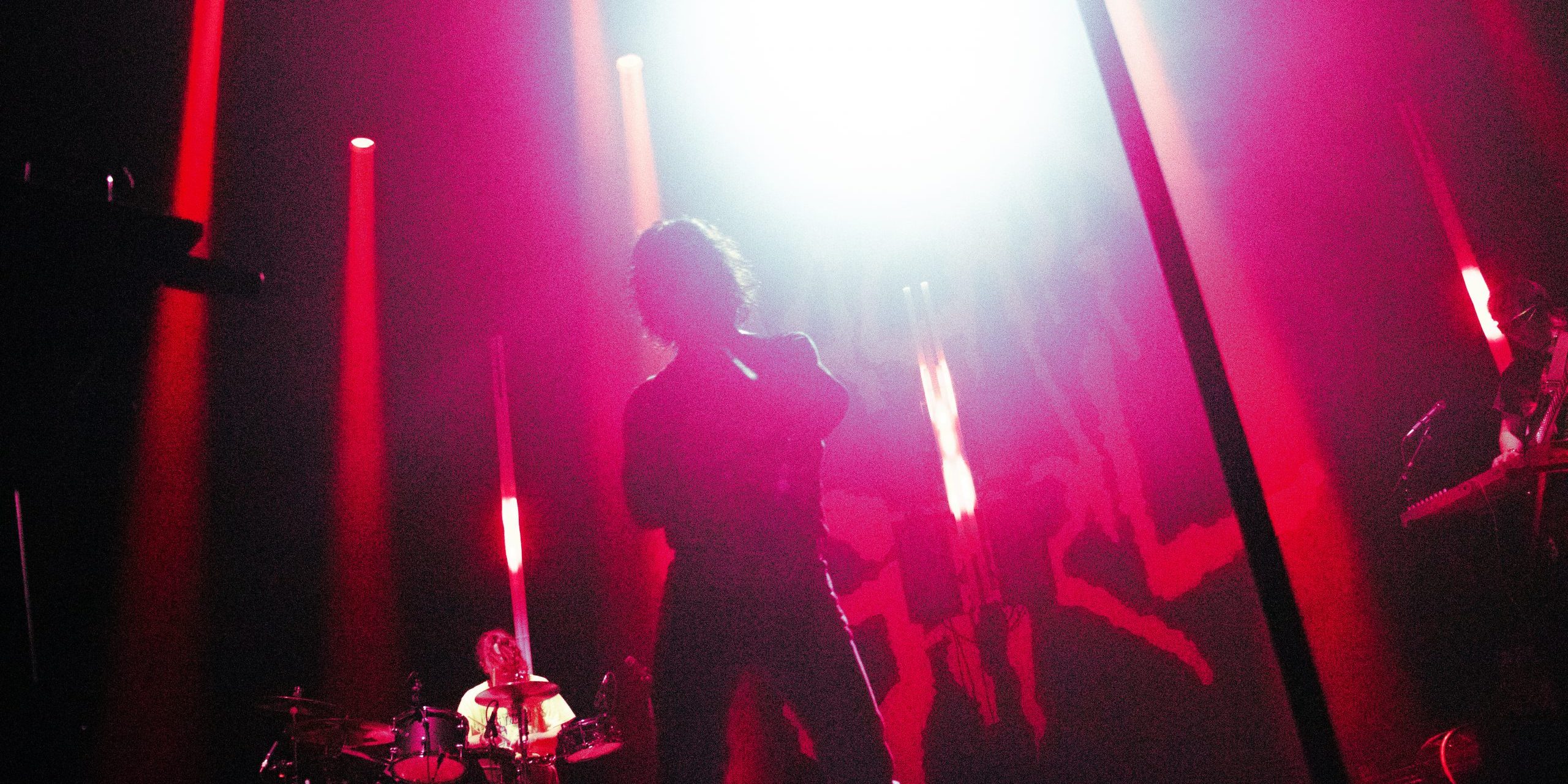Photos by Chloe Gonzales
“Guttersnipe” isn’t the name of a Machine Girl song, but it also isn’t out of place in the universe they’ve built. It sounds like the name of a hardcore band, scrawled hastily on a sweat-covered bass drum, or maybe the title of some bullet hell video game, illegally ripped onto an emulator – it is, for the record, a Magic The Gathering card (more on that connection later). It’s an old word, a sneering epithet for poor “street kids,” Victorian predecessors to gutter punks, or, perhaps, members of the Machine Girl subculture.
The fanatical following of Matt Stephenson and Sean Kelly’s hardcore-digicore-postcore electronic project winds in lines outside of the Novo, where the duo played a sold-out show last Thursday. Misshapes, mistakes, freaks, geeks, and queers wait dutifully throughout the dizzying labyrinth of L.A. Live, passed by Lakers fans hustling to Staples Center (hard to call her Crypto). A group of guffawing men in their best business casual are already entering through the V.I.P. door, embodiments of Machine Girl’s recent shoulder-rubbing with mid-upper echelons of the industry. Earlier this year, they released their latest album, MG Ultra, on Future Classic, their first major label – in fact, their first label, period. Throughout the show, the two rising gutter kids express their ambivalence about this hyper speed pivot in a show that, like a teenage animal, pushes its room-cum-cage as far as it can go.
Again, it’s the fans that remind one where the two rabble rousers spawned from. As the line trickles inside around 7:30, the two-leveled venue fills with Invader Zim hats, black lipstick, kandi, intricate piercings (those poor metal detectors), greasy hair, vape smoke, and euphoria. Out of closets, sewers, cramped apartments, and Discord servers, and into a room steadily heating up with Monster-buzzed bodies. We’re finally in the same physical space as the group whose frenetic, piercing howls of digi-angst have soundtracked video games, mental breakdowns, mosh pits, and, yes, Magic matches.
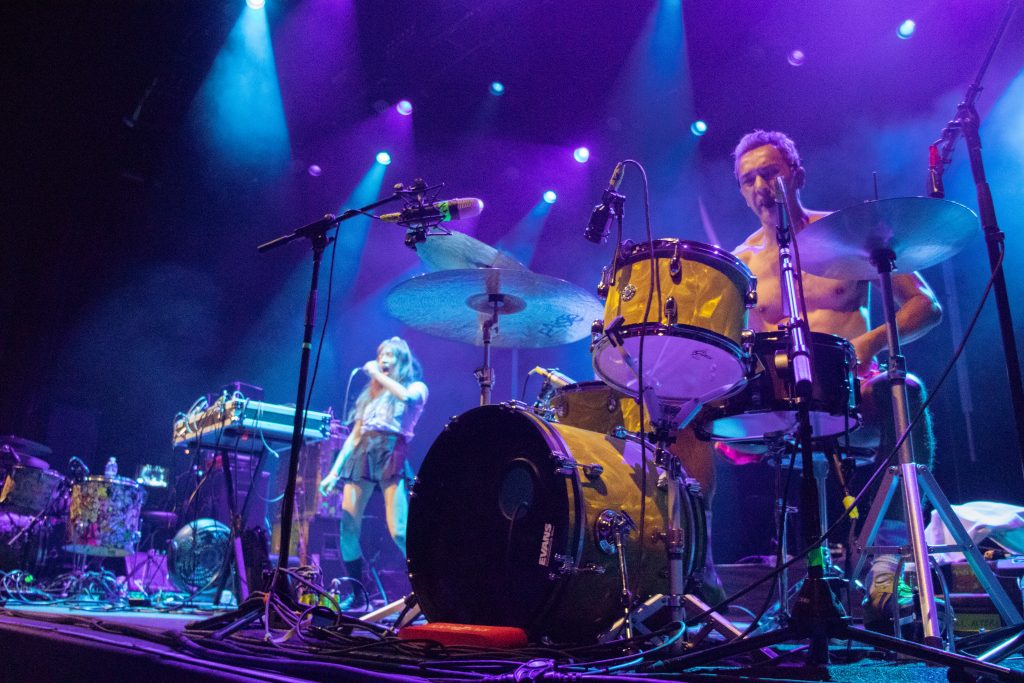
“They’re late,” exhales a security guard. It’s 8:15, a quarter past the designated start time for opener Kill Alters. Late? The comment is a clear signifier of the venue’s mainstream identity – underground spaces like ballrooms and the raves where Machine Girl first sharpened their teeth operate on queer time, with acts not beginning until at least an hour after advertised. Places like the Novo operate on a stricter, more normative schedule, sacrificing the more anarchic energy for bigger rooms and better pay. Plus, nobody’s falling on equipment.
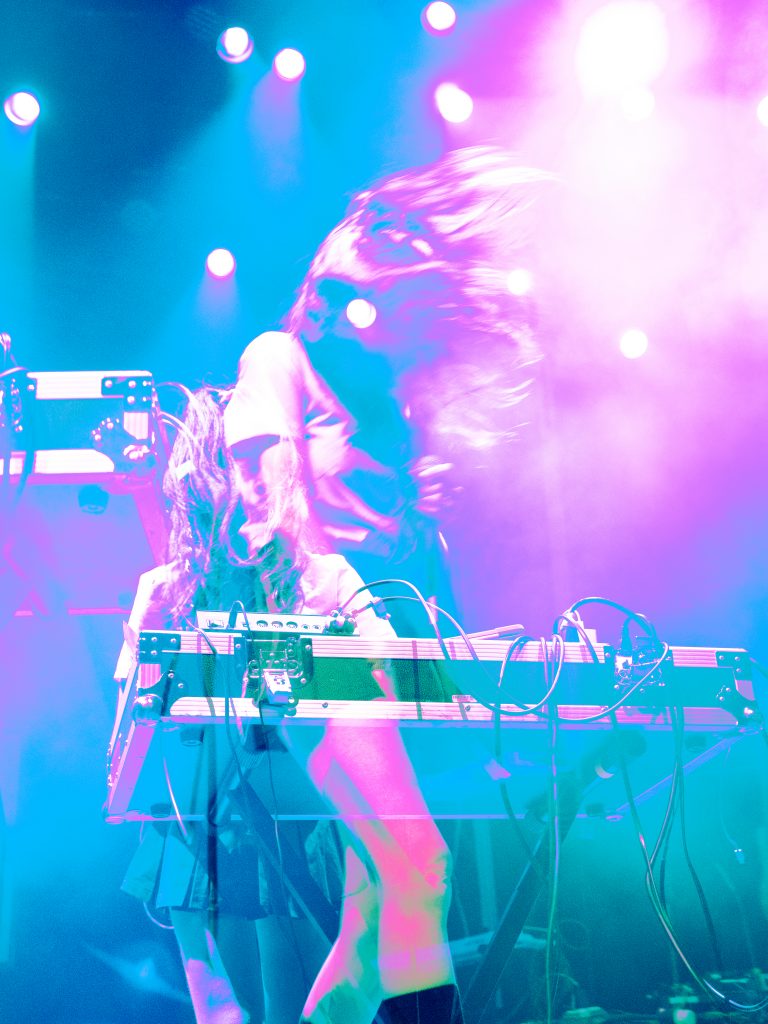
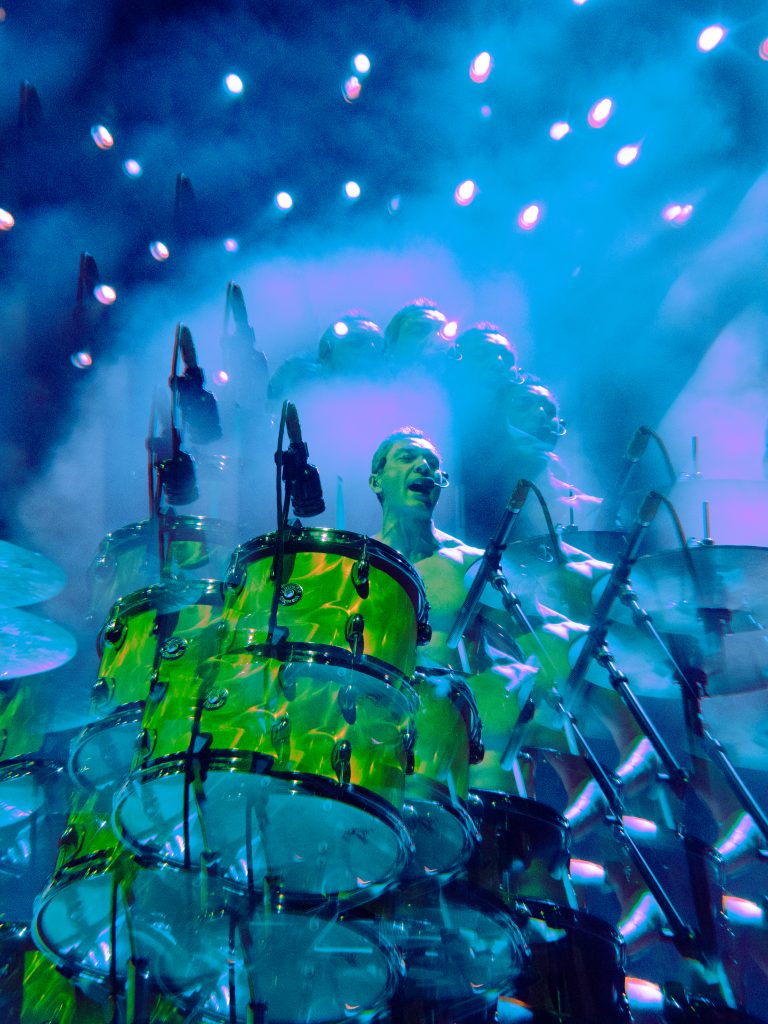
When Kill Alters does come on, their noisy, bratty sound is a reminder of how electronic experimentation has burst its way into music criticism’s consciousness. Joining the ranks of acclaimed and abrasive groups like Xiu Xiu and The Knife, vocalist Bonnie Baxter and drummer Hisham Bharoocha craft a series of roiling, synthetic tantrums. Their set-up of drums and analog synth is ostensibly rudimentary, but it yields songs both intricately composed and ear-poppingly abrasive. Bharoocha hammers dependably behind the drums for the entire set while Baxter gradually moves from the keys to the rest of the stage before eventually descending upon the pit. Though far from hostile, the crowd is fairly reserved. A mosh does break out near the end, but the participants’ sudden flailing and punching indicate that it’s less of a genuine reaction to the music and more of an impatient craving for violence. It persists after Kill Alters ends their set, oblivious to the music’s ceasing.
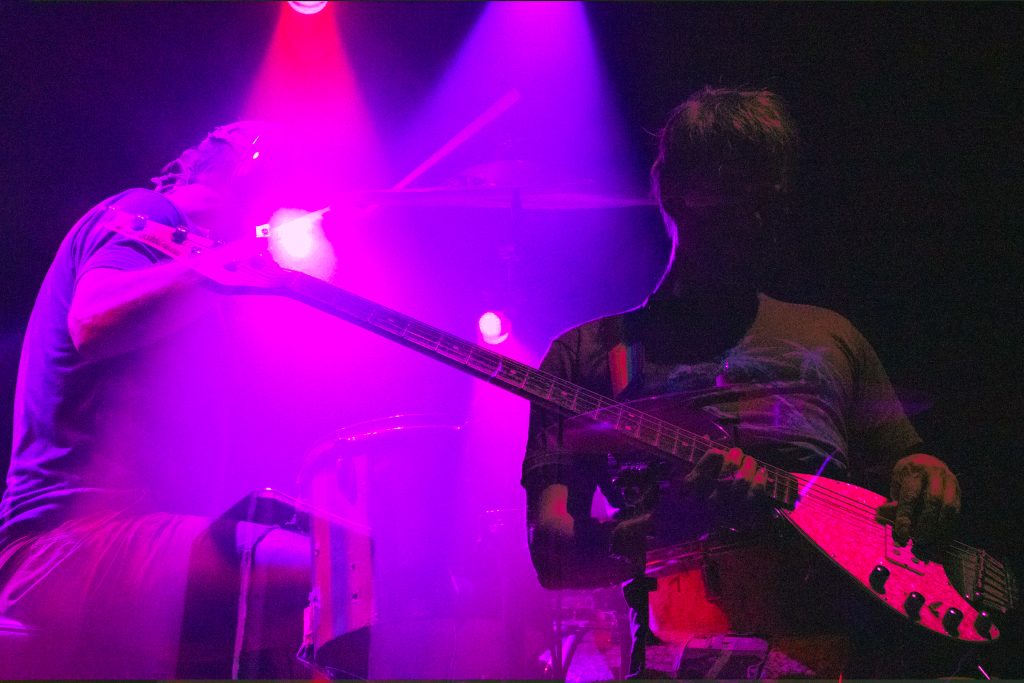
Second opener Lightning Bolt isn’t inspired by the noise rock legacy – they are the inspiration. Machine Girl has sung the legendary Rhode Island duo’s praises, citing their pummeling combo of overblown bass and endurance-testing drumming as a core strand of their DNA. The duo is relatively older than the MG crowd, with their 2003 classic Wonderful Rainbow older than the likely median age of tonight’s crowd. Of course, they keep up just fine – the hypnotic blasting of the two would make descendants like black midi sweat, and the number of moshes around the various GA sections steadily multiplies.
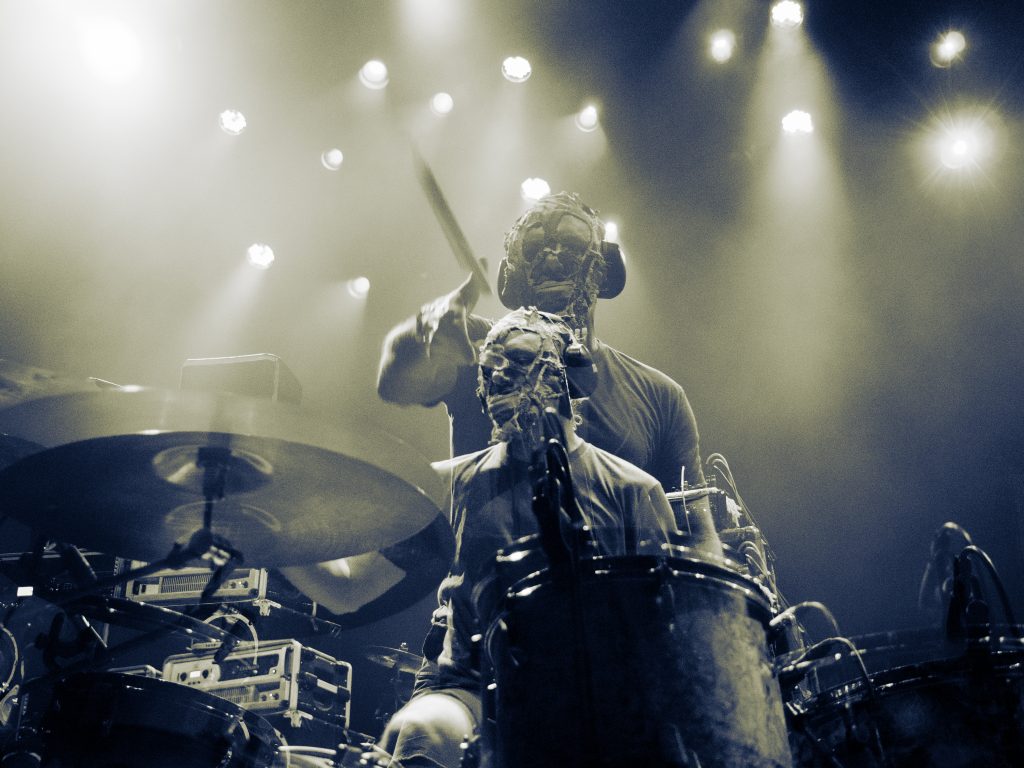
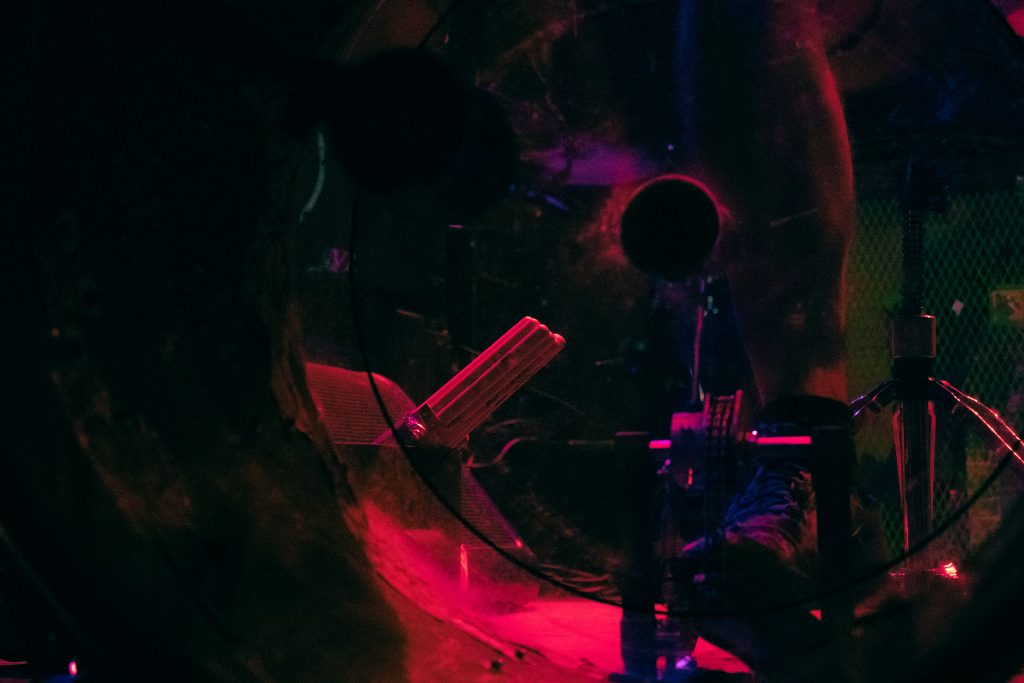
The centerpiece is drummer Brian Chippendale, who dons a mask somewhere between luchador and Cillian Murphy’s Scarecrow and breaks his sticks nearly every song (no fear – he has a bucket full of them at the ready). His off-key vocalizing, ramblings about pockets and “heavy metal, man!” attitude dissuades any notions that their reputation would result in an attitude of superiority. Their personality shows that underneath the math-rock thunderfuck are two art-school nerds kicking it with the kids who’ve traded their Sabbath and weed for gecs and Adderall.
“Fuck Joe Biden!” he yells while introducing a song originally written against Bush (further cementing the generation gap), though he’s far from a Trumper; he follows up by saying that their “lyrics are evolving because…what the fuck is coming, you know?” The sentiment is nice, but the lyrics aren’t all that decipherable. As with Kill Alters, noise is the name of the game, and the band’s distorted beatings eventually become a background soundtrack to an unofficial shopping break; Baxter beams while selling K.A. merch to a sizable line, while a guy looking like an NPC from Skyrim mans the fairly unpopulated Lightning Bolt booth. In the other room, the line for Machine Girl shirts snakes up multiple flights of stairs as fans get what they can before the main attraction.
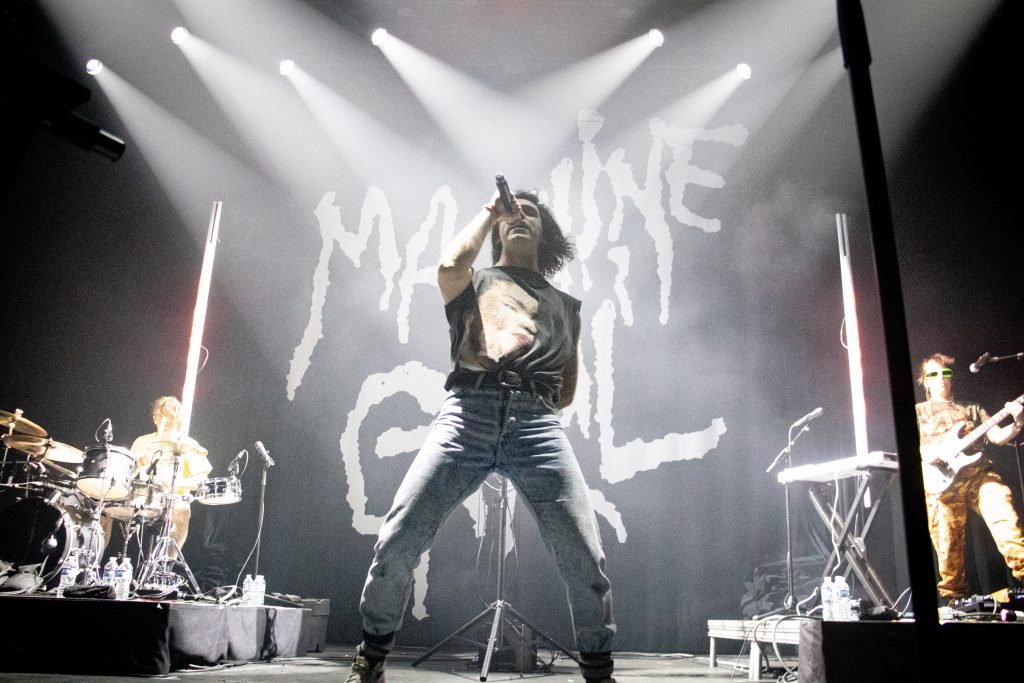
Machine Girl’s eventual entrance is scored by screams that wouldn’t be out of place as a sample in opener “…Because I’m Young Arrogant and Hate Everything You Stand For,” whose boot-up sound and hardcore drop trigger strobes and an audience reaction that shakes the ground and makes the responses to the openers look like golf claps. The minimal staging – logo backdrop, utilitarian light rig, twin platforms for drums and guitar– allows Stephenson the ultimate freedom to flail, stomp, and grind as the barrage seamlessly transitions into “Nu Nu Meta Phenomena” and “Just Because You Can,” both cuts from MG Ultra.
Though some fans recoiled at the album’s cleaner, relatively restrained sound, the stage injects the songs with life. The three-piece band set-up adds rolling drums to “Sick!!!” and a screamo edge to new highlight “Dance in the Fire,” while older songs from classic albums like Wlfgrl are relegated to transitions. Machine Girl maybe, just maybe, has become a crossover punk-rock act. Stephenson seems to relish this, as his ’80s jeans, vintage Sade shirt, and teased mesh undershirt transform him from gutter recluse into a grimy heartthrob for the weird kids, a Trent Reznor for Gen Z. Red and blue flashes backlight his contortions during “The Fortress,” as fans scream for him and form more and more moshes in the space. Stephenson screws with time in stage banter: “this is our last song,” he drawls 10 minutes into a set that would last about an hour.
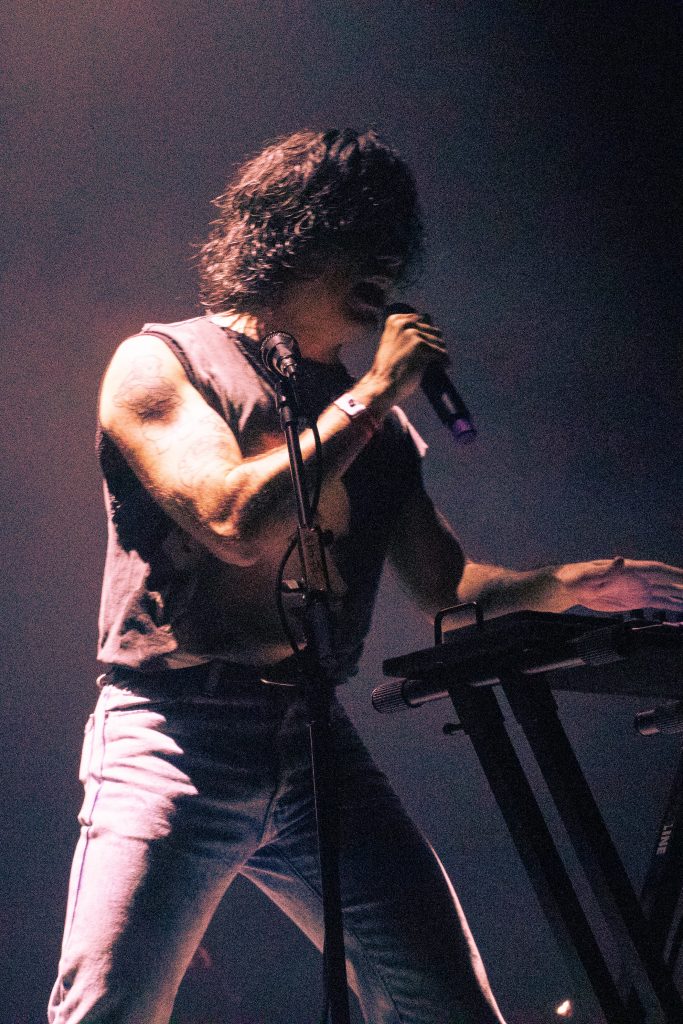
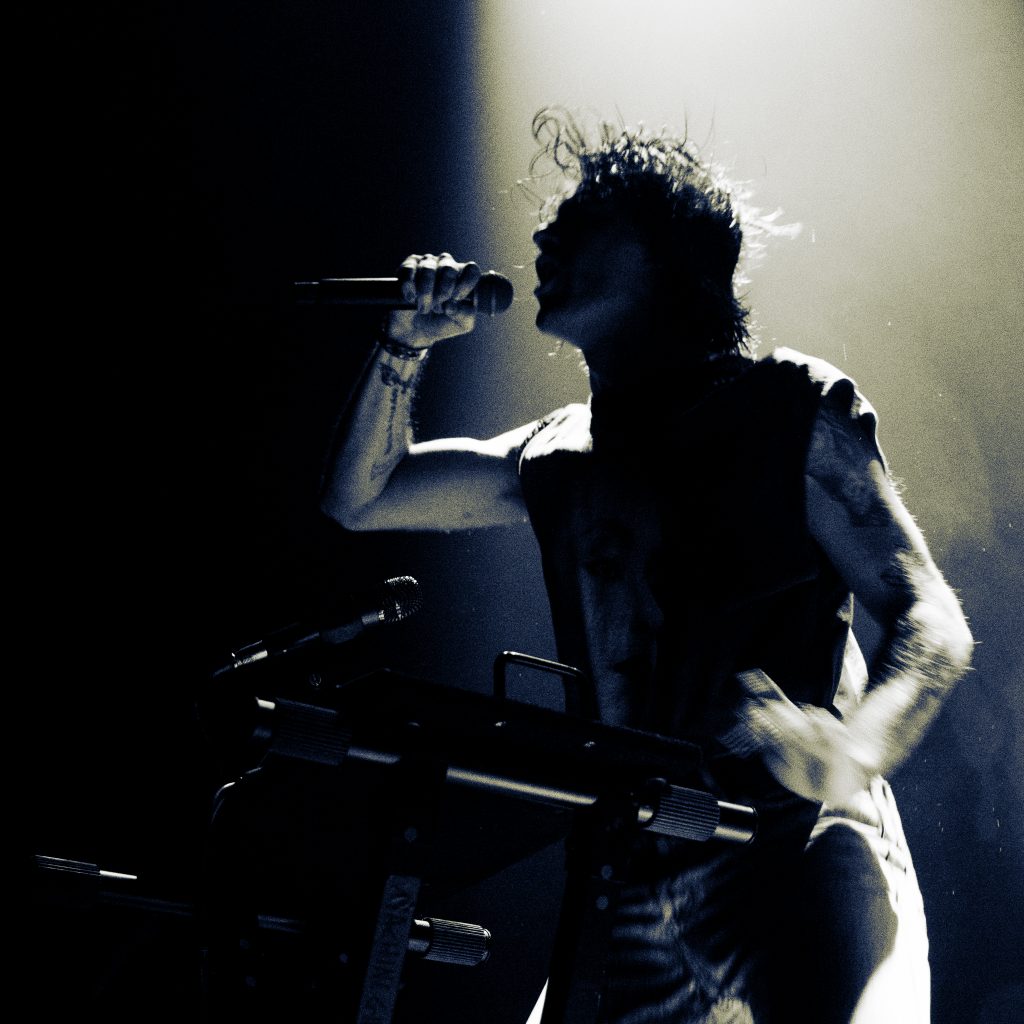
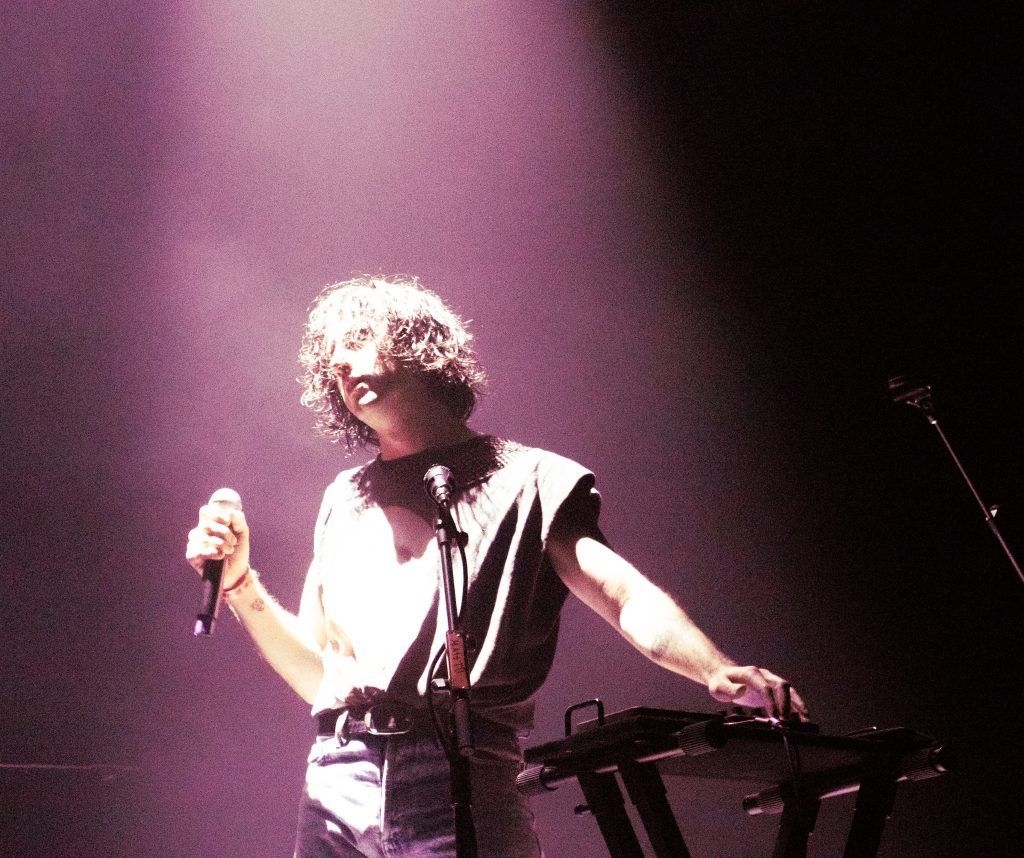
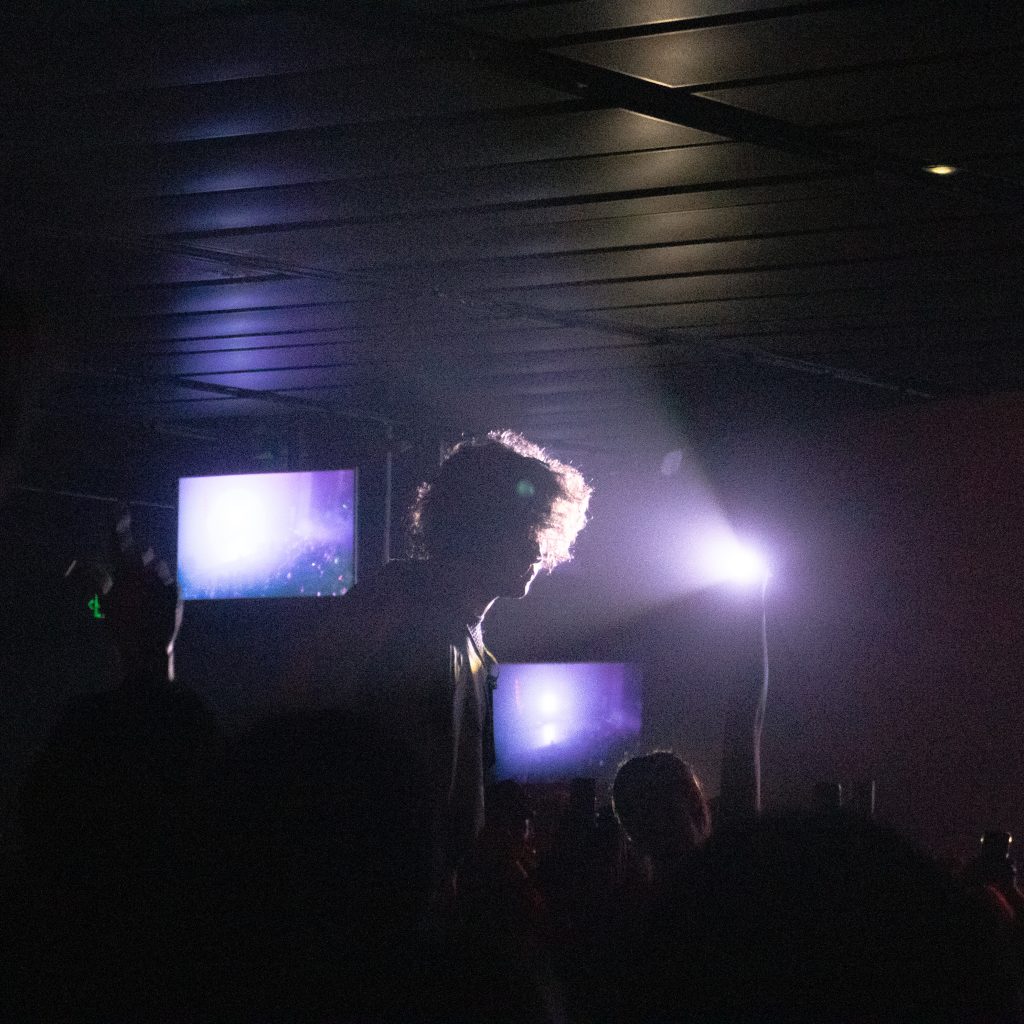
The proliferation of dance circles turn the venue into a world of catharsis – just as the band wants it. “Stay in The Novo. Occupy the Novo,” Stephenson pants during a rare pause. “I hope you read the waiver and the fine print – you’re mine. For 50,000 years. 50,000 years at The Novo.” As the set nears its end, he makes good on this, jumping into the crowd and surfing during Ultra standout “Schizodipshit,” eventually reaching the very back. He stands, sweaty and hypnotized, on railings and the bar, followed by a demented conga line of adoring fans. No corner of the venue is safe, though he stays within the bounds of respectable anarchy (everything/body remains in one piece). When he arrives back onstage for album closer “Psychic Attack,” a costumed dancer flails around next to him. A fan? Another band member? A friend? Nothing is predictable, except for the consistency of the still-blasting backing band.
Afterwards, they leave the stage, just to do one more rock star cliche, the encore, summoned by the obligatory chants of “one more song!” We get to thrash to two more: “Cicadas” and “Scroll of Sorrow,” the latter of which rolls and pounds in equal measure, fueled by adrenaline and exhaustion. The show officially concludes with a last chorus of screams and a final engulfment of Stephenson by his fans.
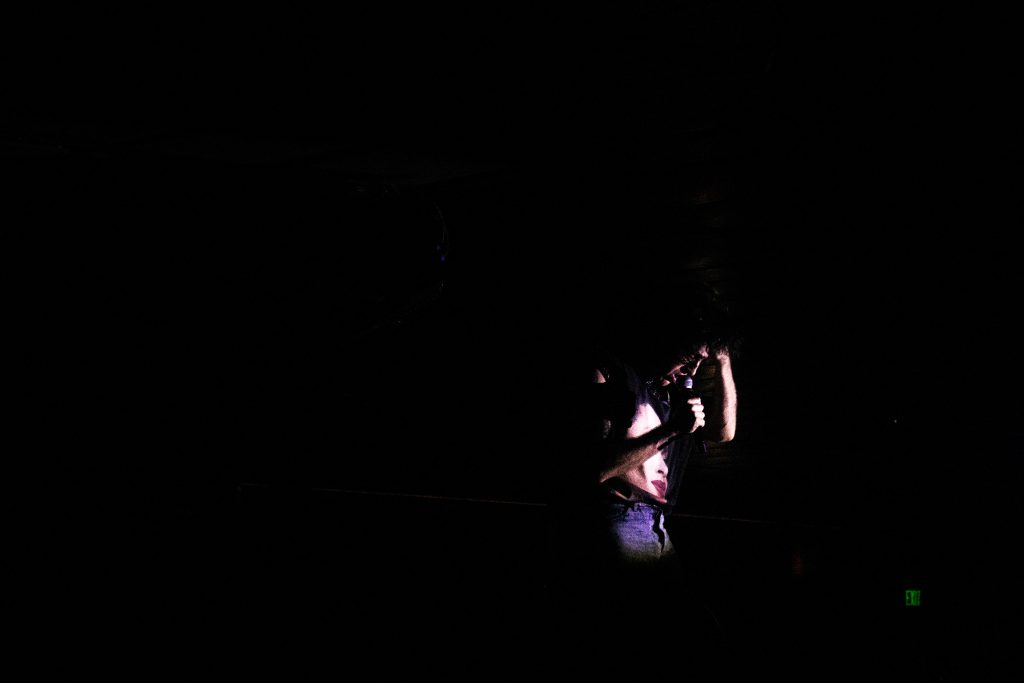
Machine Girl’s music has always been synonymous with the internet, both because of their iconic digital aesthetics and the vast online community that launched them in the first place. Their show was a reminder of the power that alchemizes when the songs make the jump from stage to screen. Now that people have stopped meowing at Mitski, online scoffing at younger fans’ post-lockdown “concert etiquette” has died down, and one can appreciate what it means for a generation of queer kids to make the often painful journey from bedrooms to public spaces. We’re finding community, whether it’s through trading kandi for the first time or discovering what it’s like to love your body and what it can do.
For just a few hours, the crowd did occupy The Novo. It’s not a revolution, but maybe it’s a rehearsal for it. We can thrash, touch the sweat of our heroes, and explode the idea of what a respectable concert is. That is, of course, until the lights come up, the doors open, and we all shuffle outside. We wouldn’t want to overstay our welcome – we have other places to be, after all. Don’t we?
